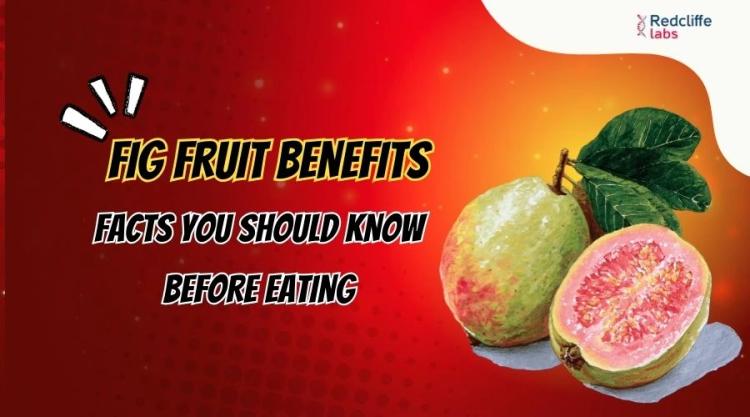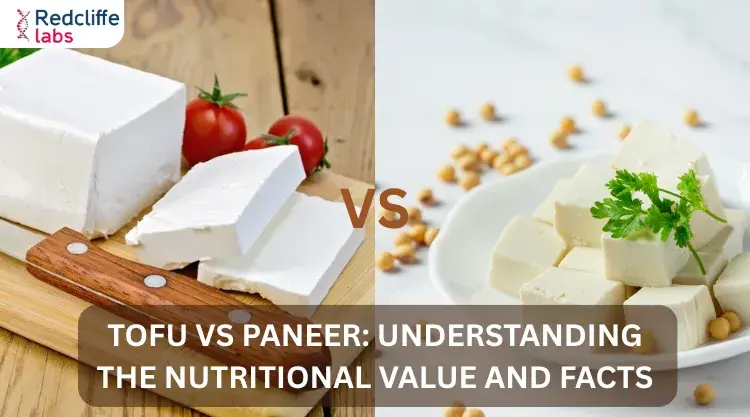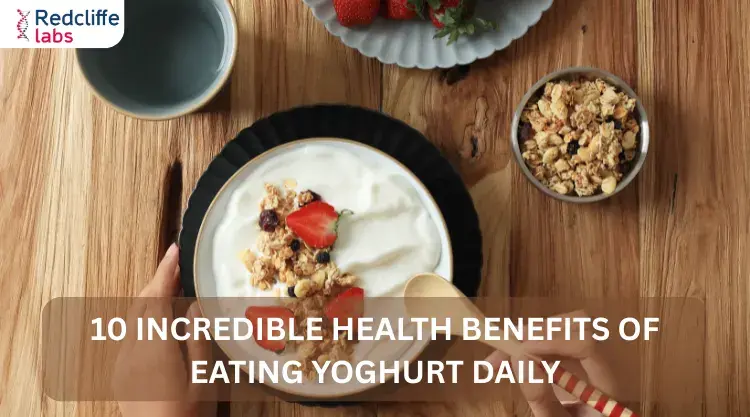Fatty Liver Diet: Foods to Include, Foods to Avoid, & Lifestyle Changes

Medically Reviewed By
Dr. Geetanjali Gupta
Written By Kirti Saxena
on Dec 23, 2024
Last Edit Made By Kirti Saxena
on Jul 19, 2025

According to a recent study by the All India Institute of Medical Sciences (AIIMS), about 38% of adults and 35.4% of children in India have non-alcoholic fatty liver disease (NAFLD). This is higher than the global average of 25%.
Fatty liver disease, often caused by excessive fat accumulation in the liver, is a growing health concern worldwide. The body stores fat as energy and insulation in many body areas, including the liver. If the fat content is too high in the liver, it can signify fatty liver disease. Diet changes are the first-line treatment for these conditions. A healthy diet is important for managing and reversing the condition.
This blog will help you understand what to eat, avoid, and adopt lifestyle changes for fatty liver disease. Let's dive in!
What is Fatty Liver Disease?
Fatty liver disease happens when excess fat accumulates in liver cells, causing inflammation and damage. It is divided into two main types:
- Non-Alcoholic Fatty Liver Disease (NAFLD): Unrelated to alcohol consumption.
- Alcoholic Fatty Liver Disease (AFLD)- This is linked to excessive alcohol intake.
In case left untreated, fatty liver disease may develop progressively and become a severe condition like cirrhosis or liver failure.
List of Foods To Add to a Healthy Liver Diet
Here are the foods people with fatty liver can eat-
1. Fruits and Vegetables
Fruits and vegetables contain vitamins, minerals, antioxidants, and fiber. These essential nutrients help fight liver inflammation, reduce fat accumulation, and improve liver function. They also help manage weight and play an important role in reversing fatty liver disease.
Best Fruits for Fatty Liver
These fruits are low in sugar and rich in liver-friendly nutrients:
| Fruit | Benefits |
| Berries | High in antioxidants that protect liver cells from damage |
| Apples | It is rich in fiber and polyphenols, which improves gut and liver health |
| Citrus Fruits | Boost detoxification with vitamin C and antioxidants |
| PapayIt contains | ins enzymes that aid digestion and reduce fat storage |
| Avocado | High in healthy fats and glutathione, promoting liver repair |
| Watermelon | Hydrates the body and provides antioxidants to reduce inflammation |
Best Vegetables for Fatty Liver:
These vegetables support detoxification and liver regeneration:
| Vegetable | Benefits |
| Broccoli | Boosts detox enzymes and prevents fat buildup in the liver |
| Spinach | Rich in glutathione and iron to enhance liver function |
| Beetroot | It contains betalains and nitrates to reduce oxidative stress in the liver |
| Carrots | High in beta-carotene, which converts to vitamin A for liver health |
| Brussels Sprouts | Packed with sulfur compounds that enhance detoxification |
| Sweet Potatoes | Provide fiber and antioxidants, improving digestion and reducing inflammation |
| Cauliflower | Promotes natural detoxification with sulfur compounds |
2. Lean Proteins
Lean protein is vital to a fatty liver diet because it provides essential nutrients without adding excess fat or calories. It is also important to maintain the fatty liver because it allows for the building blocks for recovery. Lean proteins help maintain muscle and reduce fat buildup.
Best Sources of Lean Protein for a Fatty Liver Diet
| Protein Source | Nutritional Benefits |
| Egg Whites | It is low in calories and fat and rich in high-quality protein. |
| Skinless Chicken Breast | High in protein and low in saturated fat. It is ideal for weight management and liver health. |
| Fish (Salmon, Cod, Tuna) | Rich in omega-3 fatty acids (anti-inflammatory) and lean protein for liver repair. |
| Tofu and Tempeh | Plant-based, low-fat protein packed with essential amino acids. |
| Legumes (Lentils, Chickpeas) | High in fiber and protein, helping manage blood sugar and reduce fat accumulation in the liver. |
| Greek Yogurt (Low-Fat) | It provides probiotics for gut health and protein for liver function. |
| Cottage Cheese (Low-Fat) | It is low in calories and protein, promoting satiety and muscle repair. |
| Turkey Breast | Lean and high in protein, with minimal fat content. |
| QuinoIt is a | A plant-based complete protein and an excellent gluten-free option. |
| Edamame (Soybeans) | High in protein, fiber, and antioxidants that benefit liver health. |
- Whole Grains
Whole grains are rich in fiber, which aids in reducing fat absorption and improves digestion.
| Whole Grain | Benefits for Fatty Liver Diet |
| Brown Rice | - Have a low glycemic index to prevent blood sugar spikes - High in fiber to regulate cholesterol levels - Contains magnesium for liver function |
| Quinoa | - Rich in protein and fiber - Contains all nine essential amino acids - Gluten-free, suitable for gluten sensitivity |
| Oats | - High in beta-glucan fiber to lower cholesterol - Helps stabilize blood sugar levels |
| Barley | - High in fiber and antioxidants - Contains beta-glucan to reduce inflammation and lower cholesterol |
| Rye | - Soluble fiber to improve insulin sensitivity - Rich in antioxidants |
4. Healthy Fats
Omega-3 fatty acids help to reduce liver inflammation and improve overall heart health.
| Source of Healthy Fats | Examples | Nutritional Benefits |
| Omega-3 Fatty Acids | Fatty fish (salmon, mackerel, sardines) | Reduces liver fat accumulation |
| Chia seeds, flaxseeds | Anti-inflammatory | |
| Walnuts, hemp seeds | Improves liver function and fat metabolism | |
| Monounsaturated Fats | AvocadoIt helps | helps in reducing liver fat and cholesterol levels |
| Olive oil | Supports heart health and reduces liver fat | |
| Polyunsaturated Fats | Nuts (almonds, pistachios) | Reduces inflammation, improves liver enzymes |
| Seeds (sunflower, pumpkin) | Supports overall liver health and function | |
| Medium-Chain Triglycerides (MCTs) | Coconut oil | Provides quick energy, reduces liver fat |
5. Herbs and Spices
Natural herbs and spices are detoxifiers that enhance liver functioning.
Best Herbs and Spices for Fatty Liver in a Table
| Herb/Spice | Key Benefits |
| Turmeric | It contains curcumin, an anti-inflammatory compound that improves liver enzyme levels and reduces fat accumulation. |
| Ginger | Reduces inflammation, improves digestion, and supports detoxification by enhancing bile production. |
| Garlic | It contains allicin, which helps detoxify the liver and reduce fat buildup. |
| Cinnamon | It helps to regulate blood sugar levels, which can help to reduce fat accumulation in the liver. |
| Dandelion Root | Supports liver detoxification and bile production, aiding fat digestion. |
| Green Tea | It contains catechins, antioxidants that help lower liver fat accumulation and protect liver cells from damage. |
| Cloves | Rich in antioxidants, cloves protect the liver from oxidative stress and improve digestion. |
| Black Pepper | It contains piperine, which boosts the absorption of curcumin and other nutrients beneficial for liver health. |
| FenugreeIt helps | regulate blood sugar and lipid levels, reducing fat accumulation in the liver. |
Foods to Avoid for a Healthy Liver
Here are some foods you should avoid for a healthy liver-
- Sugary foods and beverages- Excess sugar is converted to fat and stored in the liver. Foods like sodas, candy, cakes, and processed snacks.
- Alcohol- Alcohol is a primary cause of liver liver damage and may cause inflammation and scarring. So avoid alcohol if you have fatty liver disease.
- Refined Carbohydrates—These foods may cause rapid blood sugar spikes and contribute to fat accumulation. Limit the consumption of white bread, pasta, and pastries.
- Fried foods are high in trans fat, which can increase fat deposits in the liver. Avoid foods such as fries, chips, burgers, and packaged baked goods.
- Excessive salt—Too much salt may cause water retention and stress on the liver. Instead, opt for herbs and spices to flavor meals.
Lifestyle Changes for a Healthier Liver
Here are some lifestyle changes you must follow for a healthy liver-
- Maintain a Healthy Weight- If you have fatty liver disease and are overweight, then the first advice of your doctor is to reduce some kilos. Reducing weight decreases liver fat and inflammation.
- Exercise Regularly. Regular exercise improves overall metabolism and reduces liver fat. Start with 30 minutes of exercise five days a week. You can include brisk walking, swimming, yoga, and resistance training in your routine.
- Stay Hydrated. Staying hydrated helps in many ways. It flushes toxins and supports liver detoxification. Try to drink at least 8-10 glasses of water every day.
- Quit Smoking- Reduces oxidative stress and prevents further liver damage.
- Prioritize Sleep—Sleep is important for cell repair and reduces inflammation. Aim for at least 7–8 hours of quality sleep each night.
When to Seek Help
If you are noticing symptoms of like-
- Fatigue
- Discomfort or pain in the upper right abdomen
- Sudden weight loss
- Jaundice
Consult your doctor about your symptoms before they worsen. Your doctor may advise you to take blood tests, such as LFT, to understand your condition. They will first need to understand your medical and family history to determine the exact cause of your condition. Furthermore, they may advise you on lifestyle changes to manage your symptoms.
7-Day Diet Plan for Fatty Liver
|
Day |
Meal |
Menu |
|
Day 1 |
Breakfast |
Warm water with lemon, oatmeal with berries, chia seeds |
|
Snack |
1 apple or a handful of unsalted almonds | |
|
Lunch |
Grilled salmon, steamed broccoli, quinoa, mixed greens with olive oil and lemon dressing | |
|
Snack |
1 cup green tea, a few walnuts | |
|
Dinner |
Lentil soup, whole-grain bread, steamed asparagus, spinach | |
|
Day 2 |
Breakfast |
Spinach, banana, flaxseed smoothie with almond milk |
|
Snack |
1 orange | |
|
Lunch |
Grilled chicken, sautéed zucchini, brown rice, cucumber, and tomato salad | |
|
Snack |
Roasted chickpeas | |
|
Dinner |
Baked cod, sweet potato mash, steamed green beans | |
|
Day 3 |
Breakfast |
2 boiled eggs, whole-grain toast, herbal tea |
|
Snack |
A handful of mixed seeds (pumpkin, sunflower) | |
|
Lunch |
Turkey and avocado wrap in a whole-grain tortilla, kale, and apple salad | |
|
Snack |
Green tea, cucumber slices | |
|
Dinner |
Grilled shrimp, wild rice, sautéed bell peppers | |
|
Day 4 |
Breakfast |
Warm turmeric milk, whole-grain toast with almond butter |
|
Snack |
1 pear | |
|
Lunch |
Grilled chicken or tofu, quinoa, roasted Brussels sprouts, carrot, and beet salad | |
|
Snack |
Unsalted pistachios | |
|
Dinner |
Steamed fish, sautéed spinach, mashed cauliflower | |
|
Day 5 |
Breakfast |
Greek yogurt with honey, walnuts, and blueberries |
|
Snack |
Watermelon or cantaloupe slices | |
|
Lunch |
Grilled chicken or tofu, quinoa tabbouleh, hummus with veggie sticks (carrots, cucumbers) | |
|
Snack |
Green tea, almonds | |
|
Dinner |
Baked eggplant, tomato, and chickpea stew, whole-grain bread | |
|
Day 6 |
Breakfast |
Scrambled eggs with spinach and mushrooms, black coffee or green tea |
|
Snack |
Sunflower seeds | |
|
Lunch |
Turkey burger in lettuce wrap, roasted sweet potatoes, green beans | |
|
Snack |
Mixed nuts | |
|
Dinner |
Stir-fried tofu with bok choy, bell peppers, sesame seeds, brown rice | |
|
Day 7 |
Breakfast |
Ginger-lemon water, whole-grain pancakes with strawberries, honey |
|
Snack |
Unsweetened yogurt with flaxseeds | |
|
Lunch |
Grilled salmon, quinoa, and spinach salad, steamed broccoli, and carrots | |
|
Snack |
Apple or walnuts | |
|
Dinner |
Vegetable soup with baked sweet potato. |
Takeaway
A healthy liver diet combines a balanced diet and lifestyle modifications, and it plays a crucial role in managing fatty liver disease. Focus on nutrient-dense foods, avoid harmful substances, and stay active to promote liver health. Don't hesitate to consult your doctor if you have any symptoms.
FAQs
Q1. Can fatty liver be reversed with diet?
Adopting a healthy diet and lifestyle changes can reverse the early stages of fatty liver disease.
Q2. Is coffee good for the liver?
Yes, you can consume coffee. It is good to reduce liver inflammation and protect against liver damage.
Q3. Are there specific diets recommended for fatty liver?
Experts often recommend the Mediterranean and DASH diets to maintain liver health.



